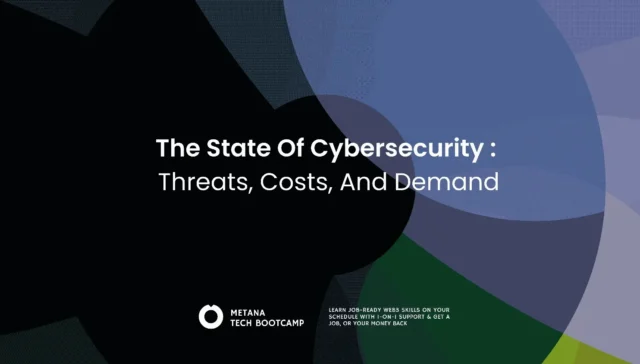TL;DR: Solidity Best Practices for Smart Contracts
- Understand Ethereum fundamentals like gas, transactions, and blockchain limits before writing Solidity code
- Learn from existing, battle-tested smart contracts such as ERC-20 tokens and DeFi protocols
- Prioritize security to avoid costly vulnerabilities like reentrancy and access control flaws
- Use modifiers to enforce rules, improve readability, and reduce repeated logic
- Optimize gas usage through efficient storage, loops, and data structures
- Apply proven Solidity design patterns to write cleaner, more maintainable contracts
- Test extensively using tools like Truffle or Hardhat before deployment
- Stay updated with evolving tools, standards, and security practices in the ecosystem
- Engage with the community through open source contributions and knowledge sharing
- Practice consistently by building, testing, and iterating on real smart contracts
Solidity, the language powering Ethereum smart contracts, offers immense potential for building decentralized applications (dApps). However, the unique blockchain environment demands a different approach to coding compared to traditional programming. Navigating gas costs, security vulnerabilities, and efficient state management is crucial for crafting robust and successful smart contracts. This article delves into important tips and tricks, laying out best practices for smart contract coding to help you excel in Solidity and produce high-quality, efficient code.
Nilupul, Junior Web3 Student Success Instructor at Metana, insisted;
“Building a smart contract in 2026 from scratch can be rigorous and complex. Leveraging proven token standards and battle-tested libraries like OpenZeppelin, then customizing them to fit our needs, is a smarter and more secure approach.”
1. Grasping the Blockchain Fundamentals:
Before diving into Solidity syntax, a solid understanding of Ethereum’s underlying mechanisms is vital. Familiarize yourself with concepts like blocks, transactions, the gas fee system, and the limitations of blockchain computation. This foundational knowledge will guide your coding decisions and help you avoid costly mistakes.
2. Learning from Existing Contracts:
The best way to learn is by example. Explore existing, well-written smart contracts on platforms like GitHub. Analyze their structure, design patterns, and security practices. Focus on popular contracts like ERC-20 tokens, decentralized exchanges, and lending protocols. This hands-on approach lets you observe real-world applications and adopt best practices.
3. Prioritizing Security:
Blockchain security is paramount. In Solidity, even minor vulnerabilities can lead to irreversible fund loss. Educate yourself on common security pitfalls like reentrancy attacks, integer overflows, and access control issues. Employ best practices like thorough code reviews, static analysis tools, and security audits to safeguard your contracts.
4. Mastering Modifiers:
Modifiers are a powerful tool for code reuse and enforcing conditions across functions. Use them to add functionality like authentication, authorization, and transaction checks. This improves code readability, reusability, and maintainability.
5. Optimizing Gas Usage:
Gas is the fuel that powers transactions on Ethereum. Minimizing gas costs is crucial for making your contracts user-friendly and affordable. Understand the gas costs associated with different operations and data types. Leverage techniques like storage layout optimization, function and loop optimization, and variable packing to achieve gas savings.

6. Implementing Design Patterns:
Solidity design patterns offer proven solutions for common challenges in smart contract development. Learn and utilize patterns like access control patterns, token standards, and DAO governance patterns. This facilitates efficient code structuring, reduces redundancy, and ensures compatibility with the wider Ethereum ecosystem.
7. Testing Rigorously:
Thorough testing is essential for ensuring the functionality and security of your smart contracts. Employ unit testing frameworks like Truffle and Mocha to test individual functions and edge cases. Utilize smart contract fuzzing tools and penetration testing services to uncover potential vulnerabilities. Remember, your code runs on an immutable ledger – testing is your safety net.
8. Staying Updated:
The blockchain landscape is constantly evolving. New tools, best practices, and security threats emerge regularly. Stay updated by following leading developers, communities, and publications in the space. Attend workshops, conferences, and hackathons to keep your skills sharp and gain valuable insights.
9. Contributing to the Community:
Sharing your knowledge and expertise is a great way to learn and grow. Contribute to open-source projects, answer questions in forums, and write tutorials or articles. Engaging with the community keeps you connected to the latest developments and fosters a collaborative learning environment.
10. Practice, Practice, Practice:
Like any skill, mastering Solidity requires dedicated practice. Build small, experimental contracts to explore different functionalities and concepts. Participate in hackathons and coding challenges to test your skills under pressure. As you gain experience, you’ll develop your own coding style and approach to designing efficient and secure smart contracts.
By adopting these tips and tricks, you can embark on your journey to mastering Solidity and building impactful dApps on the Ethereum blockchain. Remember, the key is to stay curious, experiment, and constantly learn from the community. So, dive in, code with purpose, and contribute to the exciting world of decentralized applications.
FAQs
What are smart contracts in Solidity?
- Smart contracts are self-executing contracts with the terms of the agreement directly written into lines of code, deployed on the Ethereum blockchain using Solidity programming language.
Why are best practices important in Solidity coding?
- Following best practices in Solidity ensures code security, efficiency, and maintainability, which are crucial in the blockchain environment where errors can have significant consequences.
Can beginners in programming learn Solidity for smart contracts?
- Yes, beginners can learn Solidity, but having a basic understanding of programming concepts and blockchain technology is beneficial for a smoother learning curve.
What are some common mistakes to avoid in Solidity coding?
- Common mistakes include improper handling of exceptions, overlooking gas optimization, and neglecting security vulnerabilities like reentrancy attacks.
How does Solidity differ from other programming languages?
- Solidity is tailored for creating smart contracts on Ethereum blockchain, featuring unique aspects like gas optimization, smart contract-specific security concerns, and a syntax similar to JavaScript.
What resources are recommended for learning Solidity?
- Online tutorials, official Solidity documentation, blockchain development courses, and community forums like Ethereum Stack Exchange are great for learning Solidity.
How can one test smart contracts in Solidity?
- Smart contracts in Solidity can be tested using frameworks like Truffle or Hardhat, which simulate the Ethereum blockchain environment for safe and effective testing.
What is the role of gas in Solidity smart contracts?
- Gas in Solidity refers to the unit of computation required for executing operations in a smart contract, with each operation costing a certain amount of gas.
Are there any IDEs specifically for Solidity development?
- Yes, Remix and Visual Studio Code with Solidity extensions are popular IDEs tailored for Solidity development, offering features like syntax highlighting and smart contract debugging.
What are the best practices for ensuring security in Solidity contracts?
- Best practices include regular code audits, understanding common vulnerabilities, using established design patterns, and keeping up with the latest security updates in the Solidity community.







